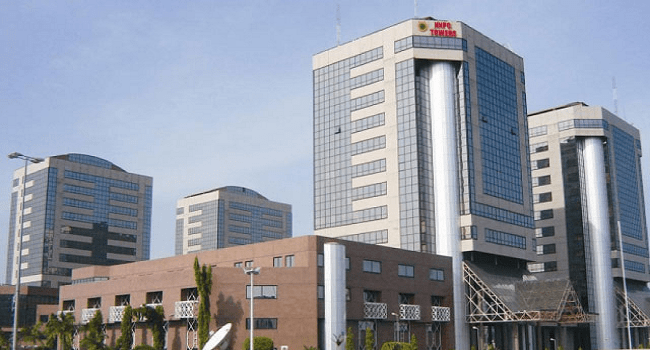The Senate on Thursday resolved to probe the Nigerian National Petroleum Corporation, NNPC, over the sum of $396 million expended on turn-around maintenance of refineries between 2013 and 2015.
The upper chamber mandated the Committee on Petroleum Downstream, Upstream and Gas to carry out a holistic investigation as well as to convoke a stakeholders’ conference with the aim of finding ways to revamp them.
A statement by the Special Assistant to the Senate President on Press, Ezrel Tabiowo, said the decision was reached after consideration of a motion brought to the floor by Yusuf A. Yusuf, Senator representing Taraba Central.
The lawmaker noted that the NNPC has four refineries: two in Port-Harcourt and one each in Kaduna and Warri.
READ ALSO: 18 ships with petroleum products, food items on board — NPA
“The country through NNPC has in the past 25 years spent Billions of US dollars in Turn-Around Maintenance of the refineries, the latest being over $396 million spent between 2013 and 2015 without meaningful result,” he recalled.
The lawmaker lamented that, “the refineries have remained in moribund state in the last 15-20 years and is almost reaching total collapse due to lack of proposer maintenance of the facilities with a poor average capacity utilization hovering between fifteen percent and twenty-five percent per annum.”
Mr Yusuf said, “despite the huge spending on turn-around Maintenance of refineries, NNPC recently announced a cumulative loss of N123.25 billion in 10 months (January to October, 2019), putting the total revenue of facilities at N68.82 billion, while total expenses incurred was N192.1 billion within the same period.”
He warned that “such huge wastage and slippages amidst the nation’s tight economy, if not addressed, may lead the country back to recession.”
The lawmaker added that such losses, when averted and combined with the huge expenditures in “under recovery” on fuel pump price and properly channeled into full rehabilitation and construction of modern refineries, would positively impact on the economy and save the country from the embarrassment of importation of petroleum products and its ripple effect.






